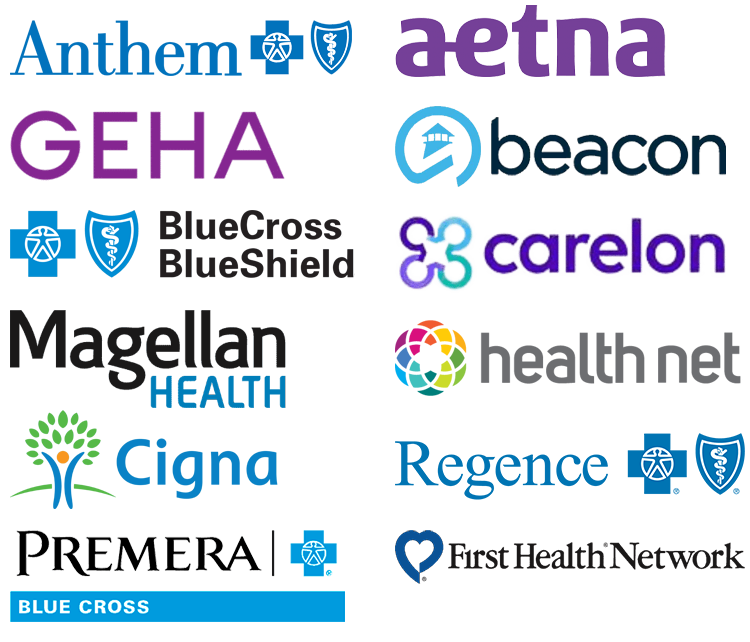For many people living with depression, bipolar disorder, or anxiety, outpatient therapy can be a helpful first step. But what happens when it’s not enough? When symptoms continue to get worse, or when someone’s ability to function starts to slip away, it may be time to consider a higher level of care. According to the National Institute of Mental Health, nearly one in five adults in the United States lives with a mental illness. For those with more severe forms, inpatient care can be a vital part of the healing process.
At Rosebay Behavioral Health in Marin county, California, we specialize in providing thoughtful, trauma-informed inpatient treatment for individuals facing severe mood disorders. Whether you’ve tried therapy, medication, or an intensive outpatient program, we’re here to support the next step when those treatments no longer provide relief. Our programs offer individualized support for conditions including bipolar disorder, persistent depression, clinical depression, and anxiety disorders.
When Outpatient Care Stops Working
Many people reach a point where talk therapy or medication management alone isn’t enough. Some signs that outpatient care may no longer be sufficient include:
- Frequent suicidal thoughts that don’t improve with outpatient safety planning
- Rapidly shifting or extreme mood episodes, such as manic or depressive cycles
- Severe loss of functioning, where even basic tasks like bathing or leaving the house feel impossible
- Psychotic symptoms like hallucinations or paranoia, which may occur in mood or thought disorders
- Medication treatment resistance, common in complex or persistent forms of depression
- Overlapping diagnoses, including schizophrenia, that complicate care
For individuals facing these challenges, an inpatient environment offers the support needed to stabilize and begin real recovery.
What Inpatient Treatment at Rosebay Includes
Treatment options vary depending on the severity and type of condition. According to the National Alliance on Mental Illness, inpatient care is often recommended when symptoms become dangerous or unmanageable in outpatient settings.
Rosebay’s inpatient mental health treatment program provides a safe, structured setting with round-the-clock care. Every element is designed to help individuals move out of crisis and toward lasting healing.
Core features of our program include:
- 24/7 psychiatric support and supervised medication management
- Individual therapy sessions tailored to your diagnosis and goals
- Group therapy and peer connection
- Evidence-based modalities like CBT, DBT, and EMDR
- Somatic and integrative care, including holistic therapy and somatic experiencing
- A personalized care team focused on your physical, emotional, and psychological well-being
These approaches are part of Rosebay’s full suite of therapies designed to promote recovery, self-awareness, and long-term resilience.
Diagnoses That Often Require Inpatient Support
Conditions such as schizophrenia, bipolar disorder, and severe depression are considered serious mental illnesses, a classification used by the Substance Abuse and Mental Health Services Administration.
Certain mental health conditions tend to require inpatient care at some stage in the treatment process. These include:
- Major depressive disorder, especially with suicidal ideation or psychotic features
- Bipolar I and II disorders, particularly during manic, mixed, or rapid cycling episodes
- Persistent depressive disorder, when long-term symptoms do not improve in outpatient settings
- Anxiety disorders that lead to complete shutdown or dangerous coping strategies
- Thought disorders, including schizophrenia
Being able to understand mood disorders can help you recognize when a change in treatment level is necessary.
Why Choosing Inpatient Care Is a Step Forward
Many individuals and families hesitate to consider inpatient care because it feels like a failure. In reality, it can be one of the most responsible, empowering choices you can make.
Inpatient care allows individuals to:
- Interrupt dangerous spirals of thought or behavior
- Stabilize medications in a monitored, supportive setting
- Build coping strategies in a consistent, structured environment
- Reconnect with a sense of purpose after periods of emotional numbness or instability
At Rosebay, we know that healing requires compassion and respect. Our trauma-informed team treats every person with dignity and care.
Continuing Care in the Real World
After inpatient stabilization, many individuals feel hopeful but also vulnerable. Re-entering daily life too quickly can sometimes undo the progress that was made. That’s why Rosebay places so much emphasis on transitional care.
Our PHP typically involves five days a week of structured support while allowing individuals to live at home or in supportive housing. For those who need less intensity, our IOP offers three to five sessions per week, often scheduled around work or school.
These step-down programs help:
- Maintain gains made during inpatient treatment
- Strengthen coping and emotional regulation skills
- Reintegrate gradually with work, school, and relationships
- Build long-term relationships with therapists and peers
Recovery is not linear, and having this kind of scaffolded support reduces fear and builds confidence.
Supporting Families Through the Process
When someone is admitted to inpatient care, it affects their entire support system. Loved ones often carry the weight of worry, especially after watching someone struggle for weeks or months. At Rosebay, we understand that families need support too.
Our team offers education about mental health conditions like bipolar disorder, clinical depression, and anxiety disorders, so that loved ones can better understand what recovery looks like and how to support it.
Whenever clinically appropriate, we include families in therapy sessions or care planning meetings to make sure everyone involved is on the same page. This builds trust and improves outcomes over time.
Why Local Care in Marin County Matters
Proximity matters when it comes to mental health care. Being able to receive treatment without leaving your community can reduce barriers to access and help families stay engaged.
Rosebay Behavioral Health offers care close to home for individuals and families in Marin County and the greater San Francisco Bay Area. From depression treatment to thought disorder support, our programs meet people where they are, emotionally and geographically.
If you’re just beginning your search or feel unsure about next steps, consider how to find mental health treatment in Marin County. You can also browse our locations and see where our team is to listen and help guide you.
Ready to Begin Healing?
If you or someone close to you is struggling with a mood disorder that hasn’t improved with outpatient treatment, you don’t have to wait until things get worse. Inpatient care at Rosebay offers an opportunity for safety, structure, and real healing.
If you feel ready, contact our team to speak confidentially with someone today.
FAQs
How do I know if inpatient care is necessary for a mood disorder?
Inpatient care is recommended when outpatient support isn’t enough to manage suicidal thoughts, psychosis, extreme mood instability, or loss of daily function.
What’s the difference between outpatient and inpatient treatment for depression?
Inpatient treatment provides 24-hour support and intensive therapy in a residential setting. Outpatient care allows individuals to live at home while attending therapy part-time.
Is inpatient care covered by insurance?
Most insurance plans offer coverage for inpatient mental health services. Our team can help you verify benefits and understand your options.
How long is a typical inpatient stay?
Treatment lengths vary, but most people stay from several days to a few weeks depending on symptoms and progress.
Can families participate in the recovery process?
Yes. Rosebay encourages family involvement through therapy coordination, education, and emotional support when clinically appropriate.








